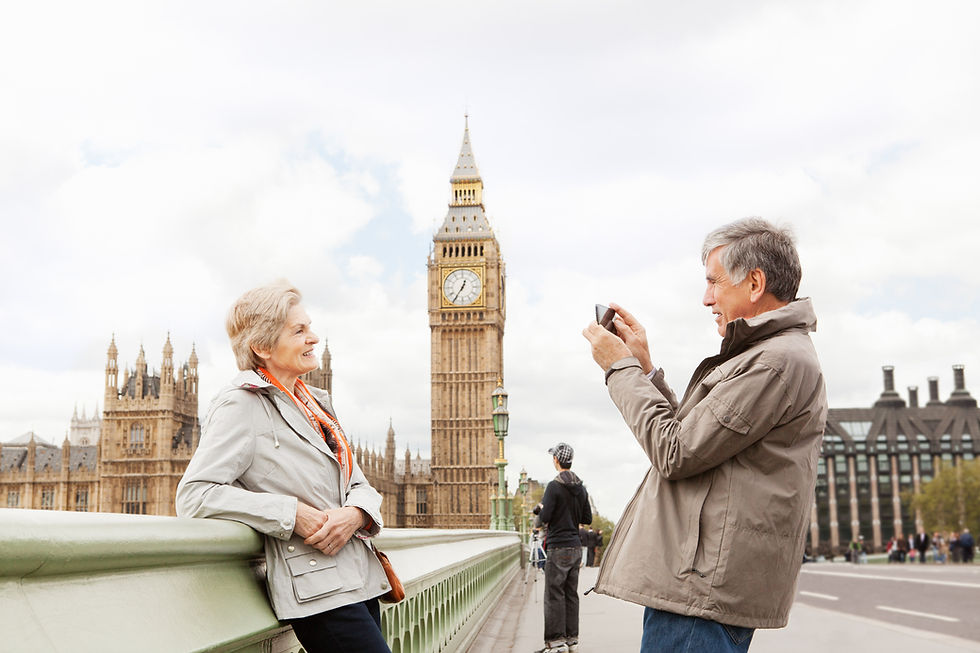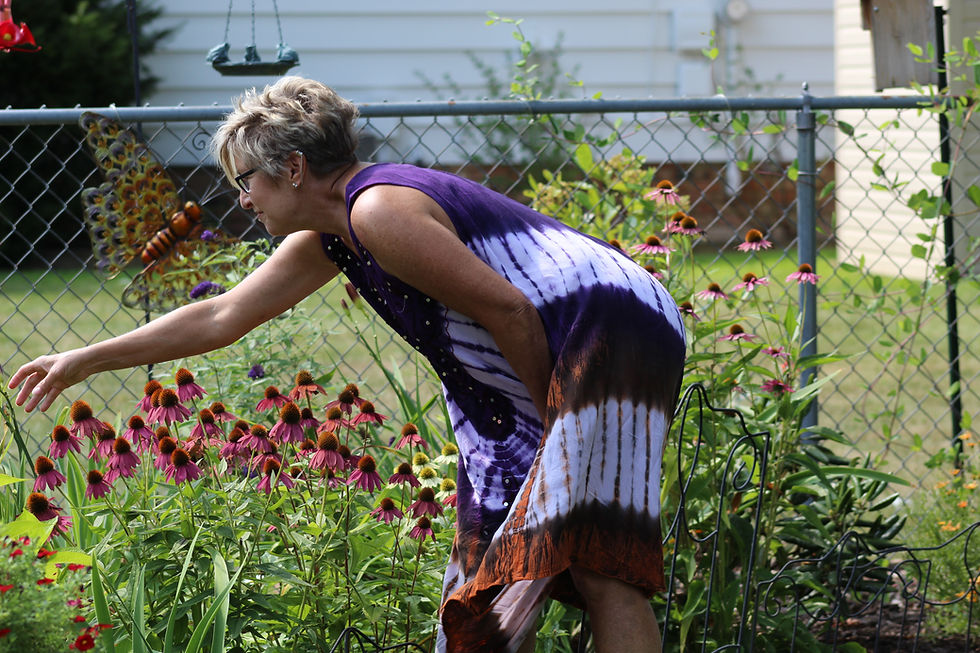Planning a Vacation With an Elderly Loved One with Dementia
- seniorsteps

- Aug 12, 2024
- 3 min read

Yes, taking a vacation with a loved one who has dementia can be possible, depending on the severity of the senior’s condition, and can be a wonderful experience of creating memories outside of your comfort zone. With careful planning and consideration of their unique needs, you can create an enjoyable experience for everyone involved.
Here are key strategies to help you plan a vacation around an elderly loved one with dementia:
Choosing the Destination
When selecting a destination, prioritize familiarity and comfort. Places that are known to your loved one, such as a family vacation home or a previously visited location, can provide a sense of security and reduce anxiety. Avoid destinations with extreme climates, high altitudes, or areas that are overly crowded or noisy, as these can exacerbate dementia symptoms.
Timing the Trip
Plan the trip during a time when your loved one typically feels their best. Many individuals with dementia have specific times of the day when they are more alert and content. Traveling during these periods can minimize stress and confusion. Additionally, consider the season and weather conditions to ensure a comfortable and enjoyable experience.
Preparing a Detailed Itinerary
Create a detailed itinerary that includes a mix of activities and ample rest periods. Structure and routine are important for individuals with dementia, so try to maintain a consistent schedule. Include familiar activities and avoid overloading the day with too many events. Flexibility is key, as you may need to adjust plans based on your loved one’s condition.
Packing Essentials
Pack all necessary medications, medical documents, and a list of emergency contacts. Bring familiar items such as a favorite blanket, pillow, or photographs to provide comfort and reassurance. Don’t forget to pack snacks, water, and personal care items like incontinence supplies, if needed. Having a well-prepared travel bag can help manage unexpected situations.
Ensuring Safety and Comfort
Safety should be a top priority. Choose accommodations that are dementia-friendly, such as hotels with 24-hour staff, secure environments, and accessible facilities. Consider renting a vacation home with a familiar layout and minimal hazards. Use GPS tracking devices or medical alert bracelets to keep track of your loved one’s whereabouts.
Transportation Considerations
Traveling by car is often the most convenient option, as it allows for flexibility and control over the environment. If flying is necessary, inform the airline in advance about your loved one’s condition and request assistance if needed. Plan for extra time at airports and make use of priority boarding to minimize stress.
Managing Daily Activities
During the vacation, engage your loved one in simple, enjoyable activities that align with their interests and abilities. Gentle walks, visiting parks, or attending local events can provide stimulation and joy. Avoid crowded and overstimulating environments that might trigger agitation or confusion.
Communicating with Care Providers
Before the trip, communicate with your loved one’s healthcare providers to discuss the travel plans and receive any necessary medical advice. Ensure you have a list of local medical facilities and contact information for healthcare professionals at your destination. This preparation can be crucial in case of a medical emergency.
Staying Connected
Stay connected with friends and family who can provide support and assistance if needed. Use technology to check in regularly and share updates about the trip. This network of support can offer reassurance and guidance throughout the vacation.
Preparing for Emergencies
Have a contingency plan in place for emergencies. This includes knowing the locations of nearby hospitals, having access to transportation, and carrying a mobile phone with important contacts programmed in. Being prepared for unexpected situations can help you stay calm and handle emergencies effectively.
Encouraging Participation and Autonomy
Encourage your loved one to participate in decision-making and activities to the extent that they are comfortable. Maintaining a sense of autonomy and involvement can enhance their self-esteem and enjoyment of the trip. Be patient and adaptable, allowing your loved one to take the lead when possible.
Post-Trip Follow-Up
After returning home, follow up with your loved one’s healthcare providers to discuss the trip and any observed changes in their condition. Reflect on the experience to identify what worked well and what could be improved for future trips. This feedback can be invaluable for planning future vacations.
If you would like to speak to a Geriatric Care Management expert on our team about an elderly loved one’s needs, condition, or care, find our e-mail and phone number at the top of this page and get in touch at no cost.







Comments